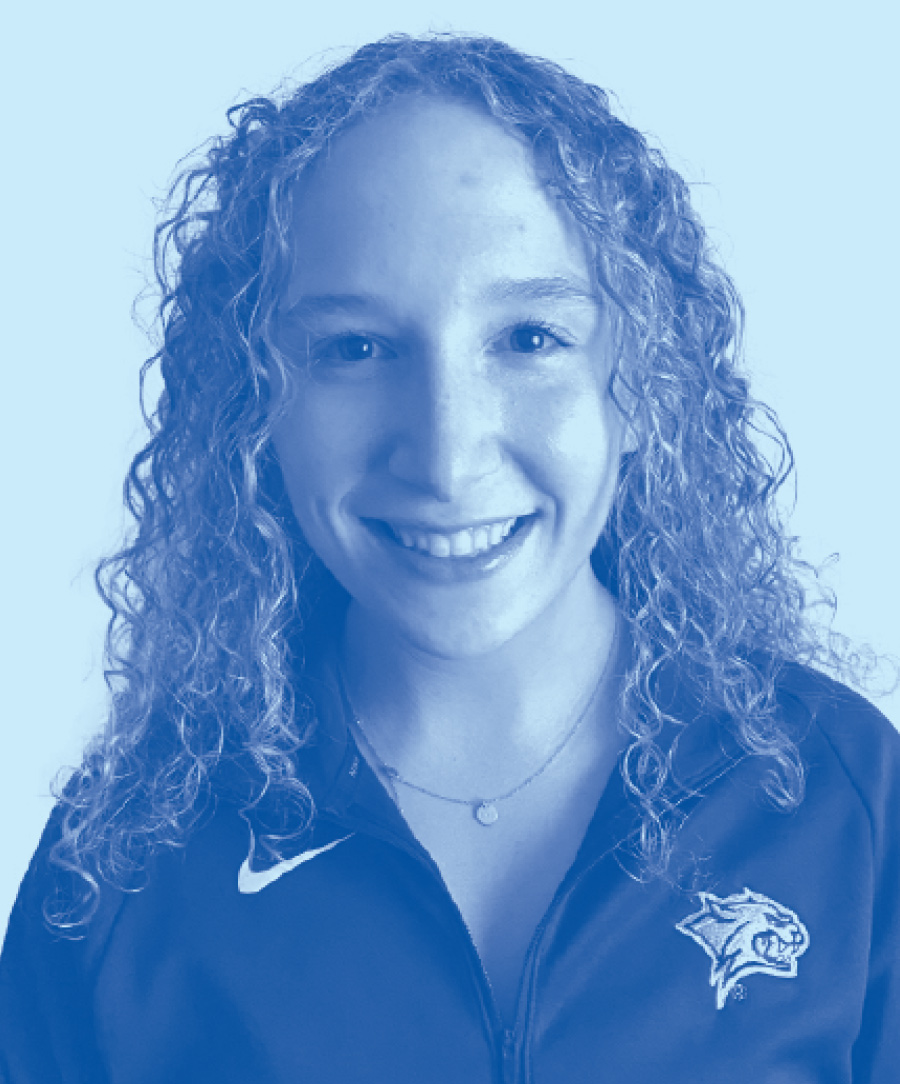GOOD TO KNOW

Kaidy Cornell earned her bachelor’s in nutrition and dietetics from UNH in 2019 and a master’s in food and nutrition sciences from the University of Rhode Island in 2021.
So take it from her: if you’re trying to eat healthier, make sure you’re eating enough. Well, that’s at least true if you’re a competitive college-level student-athlete (maybe not so true for any of us who sit in front of a computer most days).
In her role as UNH’s director of sports nutrition, she’s responsible for helping some 500 student-athletes reach their peak performance while maintaining healthy routines and habits. She says the most common food issue for athletes is that they’re undereating — not realizing how many calories they should consume each day during their athletic seasons.
“There’s usually very little sports nutrition at the high school level, so some student-athletes come to college with a mindset of limiting what they eat, not realizing how much energy or what types of energy they really need to be consuming,” she says.
The importance of eating enough is just one part of what she advises student-athletes to think about. Each of UNH’s 500 or so athletes is invited to meet with Cornell for 1:1 nutrition counseling. She talks to teams about topics such as the importance of hydration. She also runs the Athlete Fueling Station, where athletes are given one free snack a day, either for a pre-workout or recovery snack. Options include peanut-butter-and-jelly sandwiches, tart cherry juice, chocolate and strawberry milks, trail mix, bagels and pretzels.
Cornell also leads food demonstrations in the Hamel Recreation Center demo kitchen and publishes a monthly nutrition newsletter for Field House staff.
No matter what your activity level, she warns against the common misconception of restriction diets or that limiting what you love will help you stay fit. “Most dietitians, especially in athletics settings, will tell you to add things, eat more of the healthy things in your diet,” says Cornell, who believes people in her profession are sometimes looked at as “food police.”
“That’s not the case — we’re really preaching moderation. Go ahead and eat the cake.”